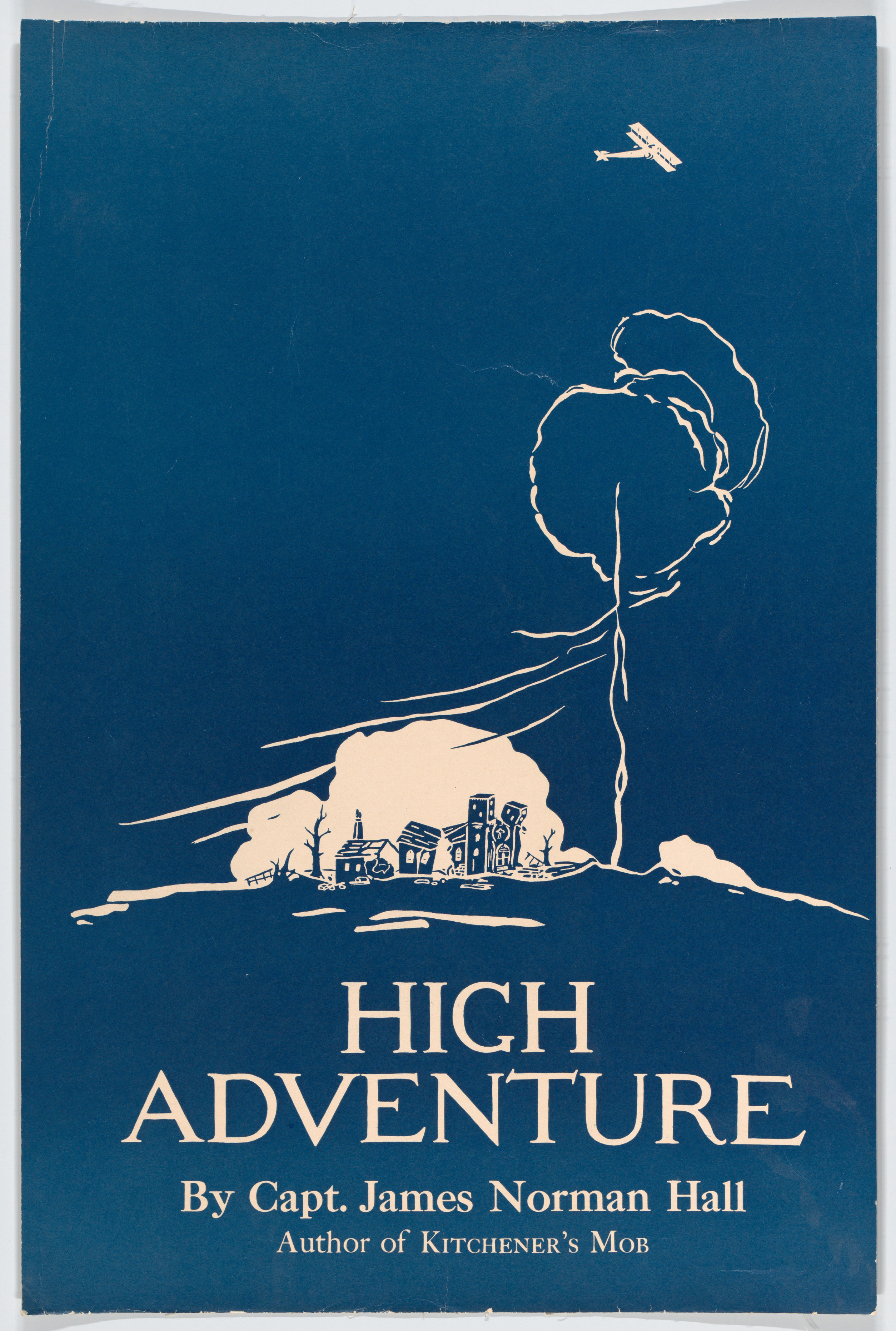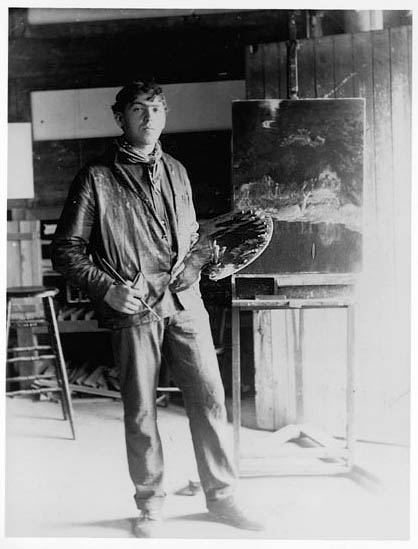|
The Bounty Trilogy
''The Bounty Trilogy'' is a book comprising three novels by Charles Nordhoff and James Norman Hall. It relates events prior to, during and subsequent to the Mutiny on the ''Bounty''. The three novels, previously published separately, are:— * ''Mutiny on the Bounty'', first published 1932. * '' Men Against the Sea'', first published 1933. * '' Pitcairn's Island'', first published 1934. ''The Bounty Trilogy'' was first published in 1936 by Little, Brown and Company Little, Brown and Company is an American publishing company founded in 1837 by Charles Coffin Little and James Brown in Boston. For close to two centuries it has published fiction and nonfiction by American authors. Early lists featured Emily ..., with a new preface by the authors and included vignette decorations by Henry Pitz. This edition used the plates from the original novels and had 903 pages. In 1940 a new edition was published by Little, Brown and Company, with illustrations by N C Wyeth. ... [...More Info...] [...Related Items...] OR: [Wikipedia] [Google] [Baidu] |
Charles Nordhoff
Charles Bernard Nordhoff (February 1, 1887 – April 10, 1947) was an American novelist and traveler, born in England. Nordhoff is perhaps best known for ''The Bounty Trilogy'', three historical novels he wrote with James Norman Hall: ''Mutiny on the Bounty'' (1932), '' Men Against the Sea'' (1934) and '' Pitcairn's Island'' (1934). During World War I, he served as a driver in the Ambulance Corps as well as an aviator in both the French Air Force's Lafayette Flying Corps and the United States Army Air Service, reaching the rank of lieutenant. After the war, Nordhoff spent much of his life on the island of Tahiti, where he and Hall wrote a number of successful adventure books, many adapted for film. Biography Early life Charles Nordhoff was born in London, England, on February 1, 1887, to American parents. His father was Walter Nordhoff, a wealthy businessman and author of ''The Journey of the Flame'' penned under the name "Antonio de Fierro Blanco". His mother, Sarah Cope Whita ... [...More Info...] [...Related Items...] OR: [Wikipedia] [Google] [Baidu] |
James Norman Hall
James Norman Hall (22 April 1887 – 5 July 1951) was an American writer best known for '' The Bounty Trilogy'', three historical novels he wrote with Charles Nordhoff: ''Mutiny on the Bounty'' (1932), '' Men Against the Sea'' (1934) and '' Pitcairn's Island'' (1934). During World War I, Hall had the distinction of serving in the militaries of three Western allies: Great Britain as an infantryman, and then France and the United States as an aviator. His awards include the Croix de Guerre, the Médaille Militaire, the Légion d'Honneur and the Distinguished Service Cross. After the war, Hall spent much of his life on the island of Tahiti, where he and Nordhoff wrote a number of successful adventure books, many adapted for film. He was also the father of Conrad L. Hall, regarded as one of the ten most influential cinematographers in film history. Biography Hall was born in Colfax, Iowa, where he attended the local schools. His early home is listed on the National Register of His ... [...More Info...] [...Related Items...] OR: [Wikipedia] [Google] [Baidu] |
Mutiny On The Bounty
The mutiny on the Royal Navy vessel occurred in the South Pacific Ocean on 28 April 1789. Disaffected crewmen, led by acting-Lieutenant Fletcher Christian, seized control of the ship from their captain, Lieutenant William Bligh, and set him and eighteen loyalists adrift in the ship's open launch. The mutineers variously settled on Tahiti or on Pitcairn Island. Bligh navigated more than in the launch to reach safety, and began the process of bringing the mutineers to justice. ''Bounty'' had left England in 1787 on a mission to collect and transport breadfruit plants from Tahiti to the West Indies. A five-month layover in Tahiti, during which many of the men lived ashore and formed relationships with native Polynesians, led those men to be less amenable to military discipline. Relations between Bligh and his crew deteriorated after he allegedly began handing out increasingly harsh punishments, criticism, and abuse, Christian being a particular target. After three weeks ba ... [...More Info...] [...Related Items...] OR: [Wikipedia] [Google] [Baidu] |
Mutiny On The Bounty (novel)
''Mutiny on the Bounty'' is a 1932 novel by Charles Nordhoff and James Norman Hall, based on the mutiny against Lieutenant William Bligh, commanding officer of the ''Bounty'' in 1789. It has been made into several films and a musical. It was the first of what became ''The Bounty Trilogy'', which continues with '' Men Against the Sea'', and concludes with '' Pitcairn's Island''. Plot introduction The novel tells the story through a fictional first-person narrator by the name of Roger Byam, based on a crew member Peter Heywood. Byam, although not one of the mutineers, remains with the ''Bounty'' after the mutiny. He subsequently returns to Tahiti, and is eventually arrested and taken back to England to face a court-martial. He and several other members of the crew are eventually acquitted. Characters in ''Mutiny on the Bounty'' *Roger Byam – main protagonist, loosely based on life of midshipman Peter Heywood; but with differences-in the book it is claimed that Byam's only ... [...More Info...] [...Related Items...] OR: [Wikipedia] [Google] [Baidu] |
Pitcairn's Island (novel)
''Pitcairn's Island'' is the third installment in the fictional trilogy by Charles Nordhoff and James Norman Hall about the mutiny aboard HMS ''Bounty''. It is preceded by '' Mutiny on the "Bounty"'' and '' Men Against the Sea''. The novel first appeared in ''The Saturday Evening Post'' (from 22 September 1934 through 3 November 1934) then was published in 1934 by Little, Brown and Company. Chapters I–XV are told in the third person, and Chapters XVI–XXI are told in the first person by John Adams. The epilogue that follows is in the third person. Synopsis After two unsuccessful attempts to settle on the island of Tubuai, the ''Bounty'' mutineers returned to Tahiti where they parted company. Fletcher Christian and eight of his men, together with eighteen Polynesians, sailed from Tahiti in September 1789, and for a period of eighteen years nothing was heard of them. Then, in 1808, the American sailing vessel ''Topaz'' discovered a thriving community of mixed blood on ... [...More Info...] [...Related Items...] OR: [Wikipedia] [Google] [Baidu] |
Little, Brown And Company
Little, Brown and Company is an American publishing company founded in 1837 by Charles Coffin Little and James Brown in Boston. For close to two centuries it has published fiction and nonfiction by American authors. Early lists featured Emily Dickinson's poetry and ''Bartlett's Familiar Quotations''. Since 2006 Little, Brown and Company is a division of the Hachette Book Group. 19th century Little, Brown and Company had its roots in the book selling trade. It was founded in 1837 in Boston by Charles Little and James Brown. They formed the partnership "for the purpose of Publishing, Importing, and Selling Books". It can trace its roots before that to 1784 to a bookshop owned by Ebenezer Battelle on Marlborough Street. They published works of Benjamin Franklin and George Washington and they were specialized in legal publishing and importing titles. For many years, it was the most extensive law publisher in the United States, and also the largest importer of standard English law a ... [...More Info...] [...Related Items...] OR: [Wikipedia] [Google] [Baidu] |
N C Wyeth
Newell Convers Wyeth (October 22, 1882 – October 19, 1945), known as N. C. Wyeth, was an American painter and illustrator. He was the pupil of Howard Pyle and became one of America's most well-known illustrators. Wyeth created more than 3,000 paintings and illustrated 112 books — 25 of them for ''Scribner's'', the Scribner Classics, which is the body of work for which he is best known. The first of these, ''Treasure Island'', was one of his masterpieces and the proceeds paid for his studio. Wyeth was a realist painter at a time when the camera and photography began to compete with his craft. Sometimes seen as melodramatic, his illustrations were designed to be understood quickly. Wyeth, who was both a painter and an illustrator, understood the difference, and said in 1908, "Painting and illustration cannot be mixed—one cannot merge from one into the other." He is the father of Andrew Wyeth and the grandfather of Jamie Wyeth, both also well-known American painters. E ... [...More Info...] [...Related Items...] OR: [Wikipedia] [Google] [Baidu] |
Grosset & Dunlap
Grosset & Dunlap is a New York City-based publishing house founded in 1898. The company was purchased by G. P. Putnam's Sons in 1982 and today is part of Penguin Random House through its subsidiary Penguin Group. Today, through the Penguin Group, they publish approximately 170 titles a year, including licensed children's books for such properties as Miss Spider, Strawberry Shortcake, Super WHY!, Charlie and Lola, Nova the Robot, Weebles, Bratz, Sonic X, The Wiggles, and Atomic Betty. Grosset & Dunlap also publishes ''Dick and Jane'' children's books and, through Platt & Munk, ''The Little Engine That Could.'' History The company was founded in 1898 by Alexander Grosset and George T. Dunlap. It was originally primarily a hardcover reprint house. In 1907, Grosset & Dunlap acquired Chatterton & Peck, who had a large children's list including the Stratemeyer Syndicate. Grosset & Dunlap is historically known for its photoplay editions and juvenile series books such as the Hardy ... [...More Info...] [...Related Items...] OR: [Wikipedia] [Google] [Baidu] |
1936 American Novels
Events January–February * January 20 – George V of the United Kingdom and the British Dominions and Emperor of India, dies at his Sandringham Estate. The Prince of Wales succeeds to the throne of the United Kingdom as King Edward VIII. * January 28 – Britain's King George V state funeral takes place in London and Windsor. He is buried at St George's Chapel, Windsor Castle * February 4 – Radium E (bismuth-210) becomes the first radioactive element to be made synthetically. * February 6 – The 1936 Winter Olympics, IV Olympic Winter Games open in Garmisch-Partenkirchen, Germany. * February 10–February 19, 19 – Second Italo-Ethiopian War: Battle of Amba Aradam – Italian forces gain a decisive tactical victory, effectively neutralizing the army of the Ethiopian Empire. * February 16 – 1936 Spanish general election: The left-wing Popular Front (Spain), Popular Front coalition takes a majority. * February 26 – February 26 Inci ... [...More Info...] [...Related Items...] OR: [Wikipedia] [Google] [Baidu] |




